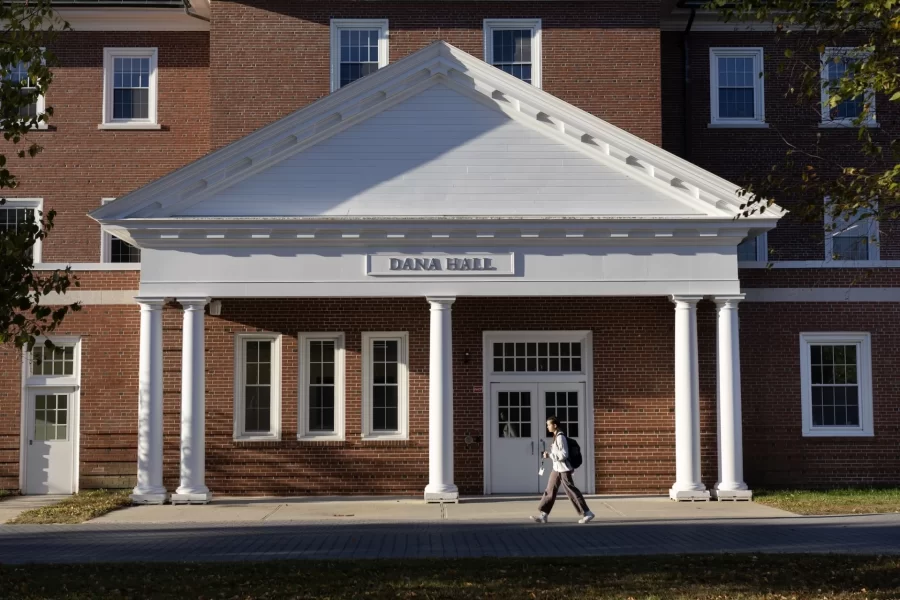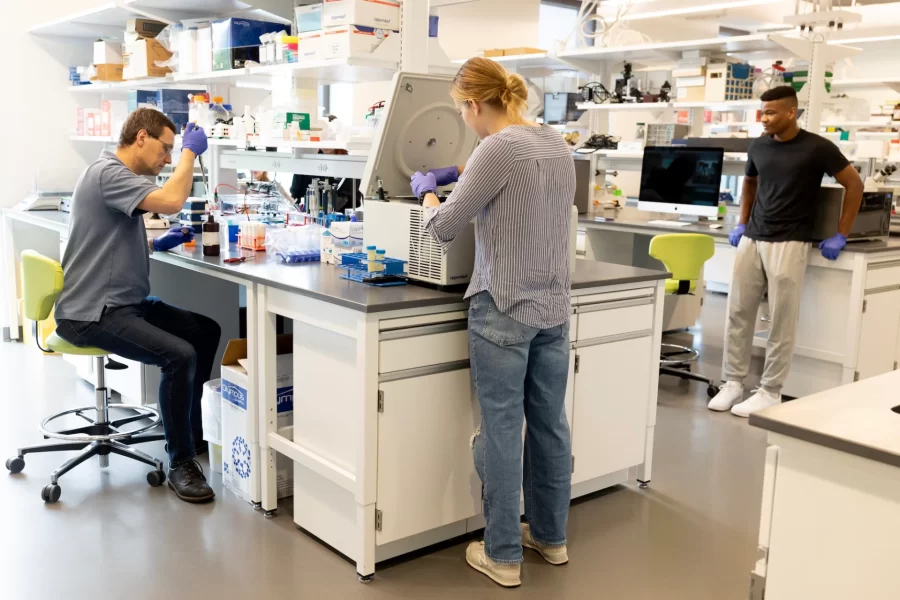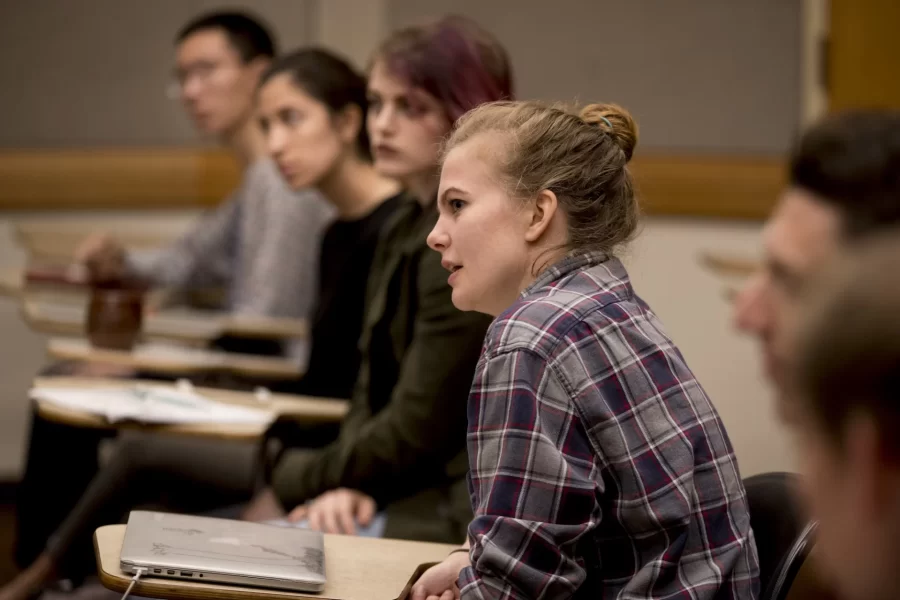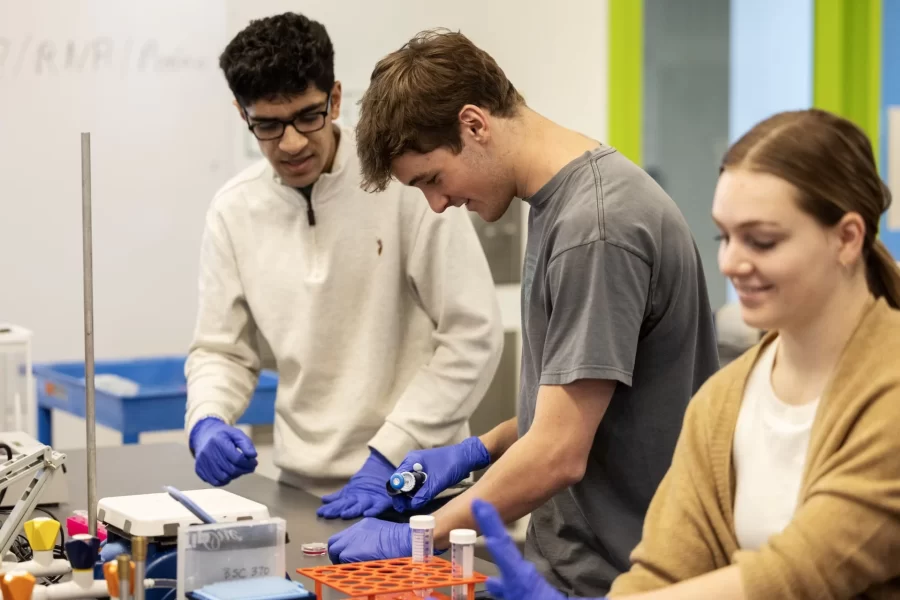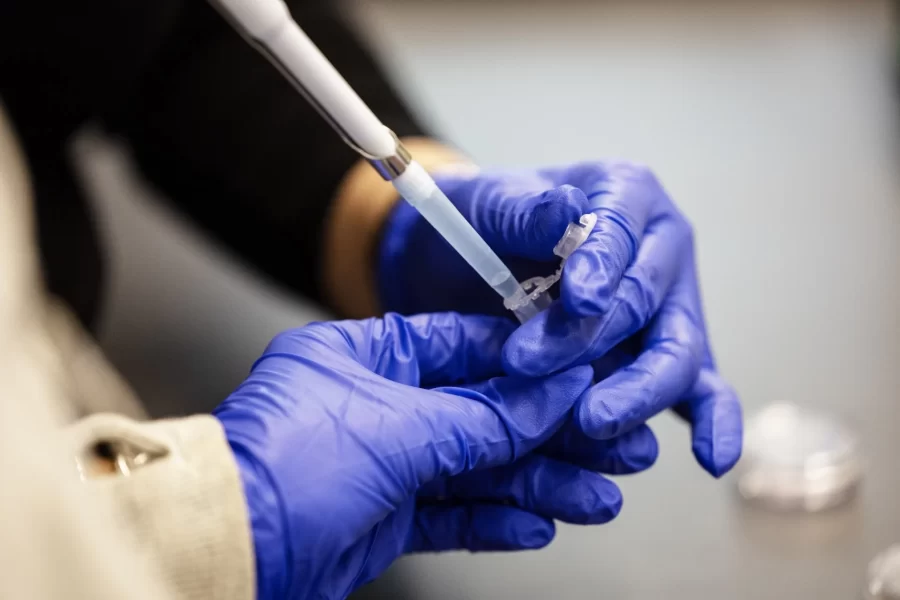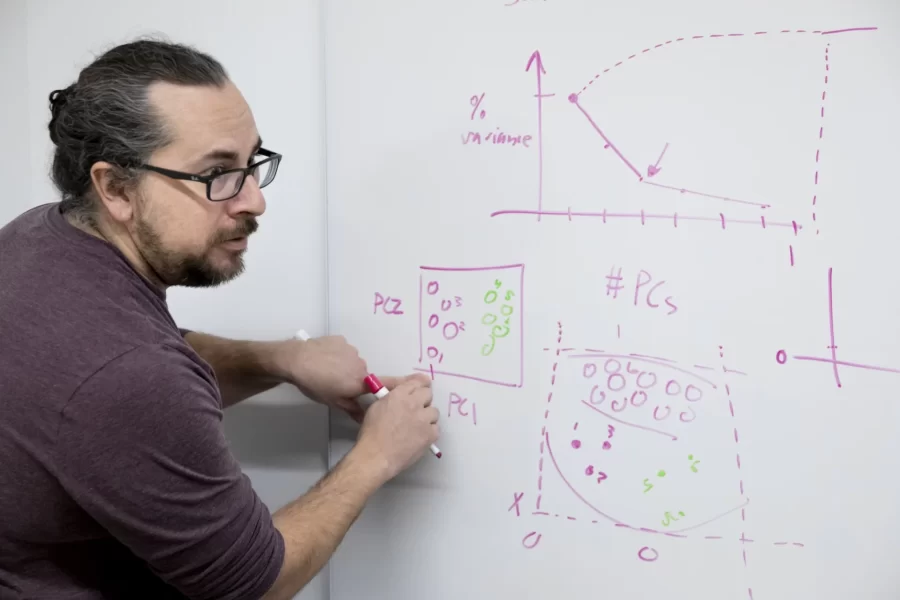Neuroscience is an interdisciplinary field that examines the interrelations between the nervous system and environment and includes perspectives from the natural sciences, social sciences, and humanities.
From Synapse to Circuits to Self to Society
The field of neuroscience examines bidirectional relationships between the nervous system and behavior and includes perspectives from the natural sciences, social sciences, and humanities. As an inherently interdisciplinary field, neuroscience applies various methodologies to study the molecular, cellular, developmental, structural, functional, computational, and pathophysiological aspects of the nervous system, while bearing in mind that nervous systems are embodied and are situated in complex, dynamic environments.
The neuroscience curriculum at Bates is structured so that students can appreciate how multiple levels of analysis and multiple scholarly frameworks are needed to understand the complexities of human and non-human animal behavior. At the cellular and molecular level, students engage with invertebrate animal models and cell cultures to learn how individual neurons process and produce electrochemical signals to support intercellular communication. Using rodent models at a systems level, students learn how neurons interact to form circuits through which animals take in sensory information and produce motoric and other output that is adaptive for the animal in its environment. At the cognitive level, students study human perception, thought, and emotion by looking at the structure and function of human brains in neurotypical and atypical states. At the computational level, students synthesize top-down and bottom-up strategies in an effort to explain how the brain works, using multidisciplinary techniques to develop, simulate, and analyze multi-scale models of neural function. At a cultural level, students consider how parameters of the human brain are shaped by social norms and institutions and how the brain, in turn, influences the formation, acquisition, and preservation of culture.
The neuroscience program fosters an active, learning-by-doing approach, as students conduct meaningful and innovative research at several points in their academic career, beginning in laboratory sections as supplementation to classroom learning and culminating with rigorous, independent research during the senior capstone experience. Another key goal of the neuroscience curriculum at Bates is to deepen capacity for a critical examination of the historical, political, and ethical contexts in which neuroscience operates such that students probe what it means to be a responsible consumer and producer of neuroscientific knowledge. By interrogating how neuroscience is done, for whom, by whom, for what purpose, and with what consequences, students come to reflect upon their own habits of mind, value systems, and politics of participation.
